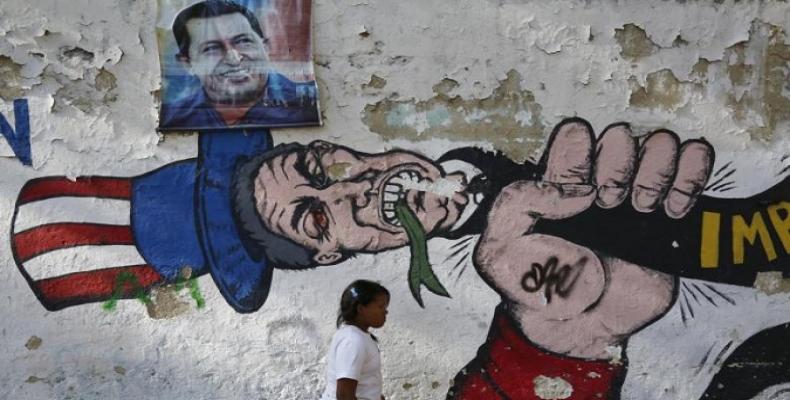Washington, March 2 (RHC)-- The U.S. administration of Donald Trump is considering a sale ban on Venezuelan oil in the United States as well as restricting insurance coverage for the South American country's oil shipments, an anonymous source, who is taking part in the discussions, told Reuters.
According to the source, the U.S. is intending to put more pressure on the Venezuelan government of President Nicolas Maduro, by tackling their major source for revenue.
“Oil sanctions are not taken lightly,” the official said. “This would be a fairly strong escalation for U.S. policy, whether it’s a complete oil sanction or salami slices of different graduated steps,” said the official. However, the official said they don't discard a full-scale ban on Venezuela's oil.
Also, restricting insurance to oil shipments would potentially harm Venezuela's ability to export oil anywhere. U.S. Secretary of Sate Rex Tillerson visited several Latin American countries at the beginning of February in an attempt to lobby right-wing governments for the aggressive U.S. foreign policy in the region, suggesting a possible complete oil-ban on Venezuela.
Sanctions on Venezuelan oil would not only harm the Bolivarian country, but the whole international oil market therefore Tillerson is carring out an international lobbying campaign among oil producers and consumers in the region.
In 2017, Venezuela was the fourth largest supplier of crude oil and products to the U.S., according to the U.S. Energy Information Administration. “I think [it would cause] a fairly strong shock to the oil market in the short term,” the unnamed official told Reuters.
The administration of President Donald Trump is also weighing possible sanctions against additional senior military and political figures, including the Socialist Party's second-ranking figure Diosdado Cabello, the official claimed.
U.S. sanctions on Venezuela already include financial restrictions that barred the U.S. from acquiring new debt deals with the Latin American country or its state-run oil company PDVSA. This, according to Venezuela's Foreign Minister Jorge Arreaza, was made more difficult to renegotiate the country's foreign debt. “It’s incredible how global banks have reacted with panic. If a bank somewhere in the world works with Venezuela, they feel they are going to be sanctioned,” said Arreaza.
Report says U.S. considers full scale oil ban on Venezuela


